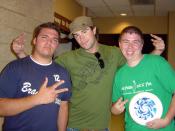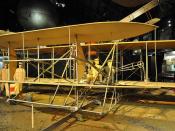ÃÂPeople all over the world, time and again, have made similar advances and mistakesÃÂ states Wright in his book A Short History of Progress (Wright, p 57). From the time civilizations have come together, humans have made similar mistakes which have had similar results leading to the destruction of the environment around them and a disastrous end to their own civilizations. Various civilizations such as Easter Island, Catal Huyuk and Mesopotamia have been destroyed because of self destructive traps called ÃÂprogress trapsÃÂ (Wright, p 56). Progress traps are created by three main factors namely by the overuse of natural resources, too much faith in religion and human wars. The catastrophe that causes these traps is not nature but man himself and we humans have a long and destructive history of ravaging ourselves.
Easter Island, an island west of South America made remarkable progress because of religion but the progress also proved to be its doom.
Their misplaced faith in the religious statues called ÃÂmoaiÃÂ and their uncontrolled population depleted the natural resources on the island (Wright, p 60). At first there was an abundance of natural resources on the island but after each generation, the statues they built were bigger than the last demanding more natural resources. The people had never thought about the future while using the resources because of their boundless confidence in their religion and their ÃÂmoaiÃÂ Gods told them that prosperity would return as long as they built more stone statues (Wright, p 61). In the end with no resources left, all the different clans got divided and raged wars with each other. The peoples of the island had made too much progress in erecting images leading to an ecological disaster which ultimately promoted a war between the different clans (Wright, p 63). Therefore, Easter Island...


